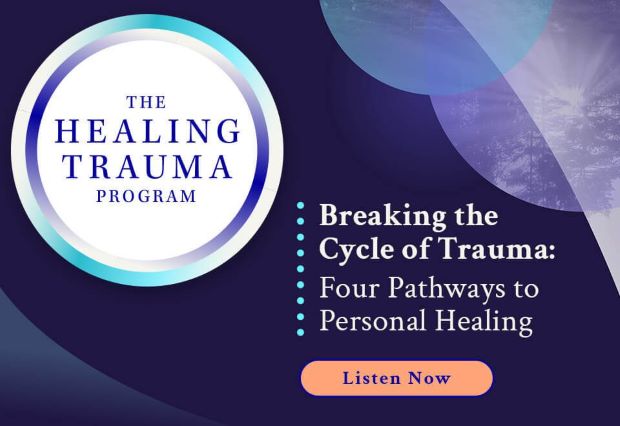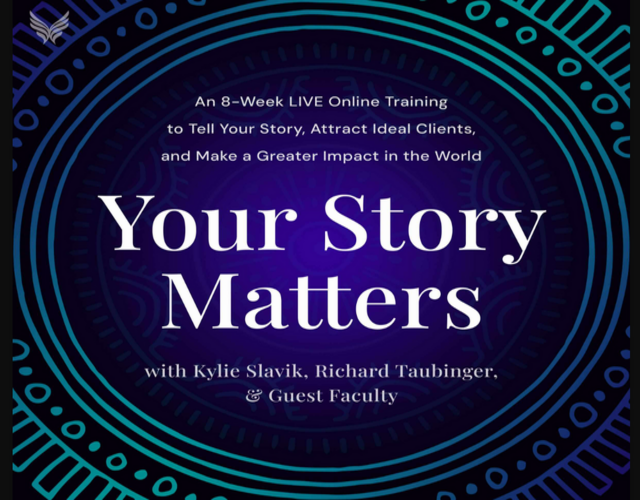Dr. Michael Acton, psychologist and relationship expert, spoke about the shock of a relationship breakup at the 2023 Mental Health Super Summit. He suggested that a relationship breakup is like a car wreck – there is not only shock but also confusion.
The natural and common reaction is to leap into another relationship for comfort and support. Loss of a relationship can be very disorientating and incredibly disturbing. People lose a sense of who they are while others in their relationship circle no longer know how to relate to them (particularly when they only knew the individual as part of a couple). Some people in the circle choose avoidance, a few offer emotional support.
Michael likens the impact of a relationship breakup to being “lost in a dark tunnel”. He suggests that disorientating shock occurs even for a person initiating a breakup. The initiator can be frozen by indecision, alternating between “staying’ and “leaving”. Indecision can then permeate every aspect of their life and especially their work environment and work tasks.
Michael provides specific advice for people in a toxic and narcissistic relationship in his book, Learning How to Leave: A Practical Guide. The book is designed to empower sufferers of abuse from toxic relationships whether they are in an intimate relationship, a business relationship or in a family where domestic violence or coercive control exists.
Michael also maintains that grief models such as that of Elisabeth Kubler Ross are not adequate to describe the shock of a relationship breakup. Unlike the loss of a loved one through death, a relationship breakup means that the other party still retains “agency” and can continue or initiate abuse physically, emotionally and/or financially.
Physical violence can be threatened by well-meaning relatives of the separated partner. The separated partner can also control mutual funds, or “take them (their former partner) to the cleaners”. One of the more emotionally exacting and potentially damaging action the separated partner can take is to withhold access to their jointly conceived children.
Michael is currently working on a book with a new model to address relationship breakups, Fork in the Road (available in 2024).
Jelena Dokic’s relationship breakup
In a previous post, I discussed the physical abuse Jelena suffered at the hands of her father and the coercive control he exercised over her and her mother. What was the greatest shock for Jelena was the sudden breakup of her relationship with her partner of 19 years, Tin Bilic. In 2021, Tin, who was with his father in Croatia at the time, announced by a FaceTime call just before Christmas Day that, “We are done”. Jelena describes the shock, pain and hurt she suffered as a result in her second memoir, Fearless: Finding the Power to Thrive.
The shock of the breakup with Tin left Jelena in disbelief – she could not comprehend why the breakup occurred (no explanation was given). There were no precursor major fights. The shock of the relationship breakup was intensified because Tin had been “her rock” since 2002 – he stood by her at her lowest point in 2005 when she was “overweight, depressed, bankrupt and on the verge of ending her life”.
Jelena described Tin as the kindest person she had ever known (taking after his mother who had been a real support for Jelena with her kindness, respect, belief and model behaviour). The permanent separation occurred after five months of temporary separation occasioned by Tin having to support his father who was in grief following the death of his wife Slavia in 2019. The uncertainty and trauma being experienced by Jelena at the time were compounded by the extended COVID lockdown in Melbourne..
Recovery from trauma: Jelena Dokic
Jelena acknowledges that she is still a “work-in-progress” following the multiple traumatic events she experienced in her life. However, she has been able to overcome the disabling effects of trauma and has established herself in a new career as an international Tennis Commentator, author and public speaker.
Jelena has been proactive in dealing with her trauma. Following her relationship breakup with Tin, she sought therapy from a psychologist and he has proven to be a “lifesaver”. Additionally, she identified a range of factors that helped her on her healing journey:
- Supportive people – In Jelena’s early years as a junior tennis player, Lesley Bowrey was a tremendous support showing her kindness, belief and respect (while sharing a strong “work ethic”). Tin himself and his mother, Slavia, were kindness personified and helped Jelena restore her self-belief. Tom Woodbridge provided tireless support for her transition to author and Commentator and provided emotional support following her breakup with Tin. Jelena frequently acknowledges the positive influence on her healing of the supportive people in her life.
- Daily morning routine – Jelena described the “mindful pause” that she takes for 45 minutes each morning. This routine involves stopping, savouring a cup of coffee, and admiring nature, especially the sunrises. She learnt from Slavia to savour the “simple things in life”.
- Expressing gratitude – Jelena is very conscious of the research that demonstrates the healing effects of gratitude. She writes in her gratitude journal on a weekly basis about the things in her life that she is grateful for (and re-reads the journal daily to remind herself of these blessings). She also writes on a post-it note each week identifying three things that she is grateful for (and displays the note on her fridge as a reminder). Jelena maintains that “practising gratitude brings calmness and joy to my mind and my life”.
- Writing and public speaking – Jelena reiterates the healing power of storytelling and credits her storytelling in her memoirs as a major factor in her trauma recovery. She notes in her memoirs that her storytelling in her public talks and presentations is not only healing for her but also for others who are experiencing trauma. This vicarious benefit is reinforced every time she meets people in public who have read her memoirs or listened to her talks.
- Practising kindness – Jelena has a whole section in her Fearless memoir on “happiness, healing and kindness”. She emphasises the power of kindness to “change lives and the world”. Jelena acknowledges that she has had to teach herself how to be kind to others and to herself (given the family violence she experienced and the devastating impact on her self-esteem and self-love).
- Empathy – Jelena in her generosity has used her resources and contacts to advocate for sufferers-survivors who have experienced what she has gone through – child abuse, body-shaming, family violence, social media trolling, eating disorders, and mental health issues.
- Meditation and mindfulness – Jelena indicated that she practices meditation to achieve calmness and overcome anxiety. Her other practices such as her “morning pause”, walking in nature, connecting to animals in a sanctuary, all contribute to her capacity to grow in mindfulness. In many ways, Jelena puts into practice the principles for happiness and resilience promulgated by Hugh Van Cuylenburg in The Resilience Project: Finding Happiness Through Gratitude, Empathy and Mindfulness (G.E.M.).
Reflection
Jelena provides a source of inspiration for many people through her storytelling and her courage to work on her healing from trauma. She demonstrates that as we grow in mindfulness we can shed our negative self-image, develop compassion and overcome life’s challenges. We can learn to overcome our maladaptive responses and restore our self-image.
The Health Story Collaborative provides the resources, encouragement and support to help you to write and share your health story. I have found the free, monthly Creative Meetups (Writing for Expression and Healing) to be a very supportive and inspiring group who are proactive in oral and written storytelling to improve their health and overall wellbeing. The group is non-hierarchical involving people with different levels of writing ability and a variety of health issues (including trauma-related illnesses and Long-COVID induced disabilities).
________________________________
Image by Avi Chomotovski from Pixabay
By Ron Passfield – Copyright (Creative Commons license, Attribution–Non Commercial–No Derivatives)
Disclosure: If you purchase a product through this site, I may earn a commission which will help to pay for the site and the resources to support the blog.




